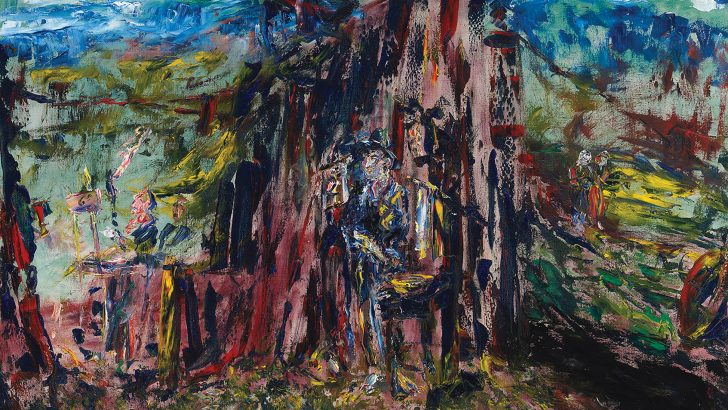The Innocence of Pontius Pilate. How the Roman trial of Jesus shaped history
by David Lloyd Dusenbury (Hurst and Company, £25.00/€30.00)
Frank Litton
Stories we are told can win or lose wars. The Taliban’s story — David vs Goliath in a ‘holy’ war — proved more telling than the United States’ and its allies’ story of a nation to be liberalised, democratised and made fit for a globalised world.
The Taliban story hardly promises liberation. It has no place for the secular and promises rule by divine instruction in the shape of Sharia law, harshly interpreted.
The Gospel story is at the heart of Christianity. It culminates in the passion, death and resurrection of Jesus Christ. In this enlightening study, David Lloyd Dunesbury takes a central episode of the story, the trial of Jesus before Pilate, and follows its impact on how Europeans came to a view of the relationship between Church and state, between revelation and politics, completely different from that of the Taliban.
We learn how the Church developed and deployed the notion of the secular to shape its understanding of the relationship between Pope and emperor.
Meditations
St Augustine laid the foundations with his meditations on Jesus’ response to Pilate: “My Kingdom is not this world”. He distinguished a ‘city of God’ from a ‘city of men’.
Christians inhabit both cities. From the perspective of the city of God, they see the dangers of the city of men with its temptations to pride and domination. While they are encouraged to move the cities closer, they know as they pray ‘thy Kingdom come’ that the gap is not theirs to close.
We hear criticism of the secular and especially ‘secularism’ from the side of the believer. We should pay more attention to criticisms from the side of politics. Jean-Jacques Rousseau is a key figure in the history of western political thought and action. His understanding of democracy had a major impact, not least on the course of the French Revolution.
The distinction between a kingdom in the here and now, and a kingdom ‘not of this world’ divides loyalty, he tells us, and weakens the former. As Mr Dunesbury reminds us, he writes in the Social Contract, perhaps his most influential contribution, “Mohammed had very sound views, he tied his political system together well, and as long as the form of this government subsisted under his successors, the Caliphs, the government was completely unified, and good for that reason”.
History is clear: the political temptation to dissolve the secular and endow states with a quasi-religious mystique delivers calamitous consequences.
Mr Dusenbury’s wide erudition that stretches from ancient history to the political philosophies of Hobbes and Rousseau masters the complexities of the story, while his elegant, lucid prose guides the general reader through them.
We learn, for instance, how prejudice shapes interpretation. Mr Dusenbury traces the efforts to downplay the role of the trial before Pilate as the focus was placed on the role of the Jews. This distracts attention from the political and legal dimension, while giving the religious dimension an entirely unjustified anti-Semitic slant.
Recent times have seen a number of books — I think especially of Larry Siedentop’s Inventing the Individual: The Origins of Western Liberalism and Tom Holland’s Dominion — that trace Europe’s liberal democratic order with its respect for human dignity, the rule of law, and human rights to its roots in Christianity.
Convincing
It is a more convincing story than the melodrama that tells how the power of reason took on the evils of superstition and authoritarianism inherent in religion and won, delivering enlightenment to all.
Of course, it is also a more complicated story. It has to be given the consequences of original sin that are much in evidence throughout. David Lloyd Dusenbury gives us an important chapter in this story. As Europe becomes post-Christian, how much of its political culture will survive the cutting off of its roots?


 Jack B. Yeats, The Basin in which Pilate washed his hands (1950). Private collection © Estate of Jack B. Yeats, DACS/IVARO, 2021. Photo: NGI.
Jack B. Yeats, The Basin in which Pilate washed his hands (1950). Private collection © Estate of Jack B. Yeats, DACS/IVARO, 2021. Photo: NGI. 